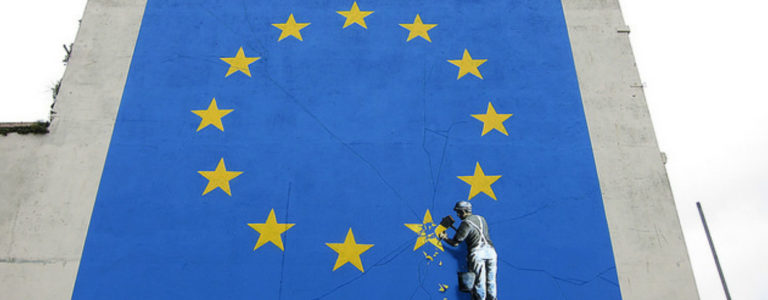Did emotional appeals help to win the Brexit referendum?

Founder of MK, Steve McKevitt, speaks about Brexit and the impact of emotional appeals in his recent Oxford University Press article: https://blog.oup.com/2018/12/brexit-referendum-emotional-appeals/
“Brexit was a big fundamental decision: an emotional decision,” said Nigel Farrage in an interview with The Guardian’s John Harris in September 2018. For once at least the former UKIP leader, a key figure in the campaign to Leave the European Union, was 100% right.
Since the shock result of the referendum in June 2016, the Government’s tortuous attempt to successfully disengage the UK from the European Union has effectively been the only news story. Indeed, Brexit coverage in traditional media has been so extensive it could probably be measured in print hectares and broadcast months, while debate in online channels has been both exhaustive and exhausting.
Yet, one aspect that has been largely absent from these discussions thus far is the contrasting approach taken by the respective election campaigns for Leave and Remain. With demands for the so-called People’s Vote gaining traction (effectively, a re-run of the 2016 referendum on the grounds that the reality of Brexit is now clear) understanding why Leave’s campaign was so much more effective is vitally important, and particularly for Remainers hoping for a reverse second time around.
In truth, it is not particularly surprising that the campaign methodologies have not been subjected to scrutiny. Academically and commercially speaking brand communication can be considered essentially ahistorical. The discipline is entirely forward-looking: it is interested in how to do things, not how they were done and has very little to say about its own past outside beyond the memoirs of its great men and women. For example, despite its considerable influence on commerce and culture during the late twentieth century, there are no extant histories of the UK’s public relations industry during this period.
Largely for this reason, social scientists tend to be suspicious of brand communication’s academic literature. They openly ignore its methodologies, conflate all of its diverse activities to advertising, and only occasionally concern themselves with its output. Even in these rare instances, research is primarily concentrated on the impact and effects of advertising rather than the matter of its conception.
Research into brand communication has been almost exclusively concerned with the way the campaigns were executed; for example, Leave’s strategy to dedicate much of its marketing spend to social media activities.
This has certainly been the case with Brexit. Research into brand communication has been almost exclusively concerned with the way the campaigns were executed; for example, Leave’s strategy to dedicate much of its marketing spend to social media activities. The conclusion drawn is that the Remain campaign would have enjoyed more success if it had adopted a similar social media strategy. I’d argue that this would probably have made very little difference: an exercise in chucking good money after bad. This decision was undoubtedly important, however, as any marketer will attest, it’s not the media channel but the persuasiveness of the communication that you are pushing through it which matters above all else.
The first issue to resolve is whether we can be sure that the Leave campaign had a significant impact. Here I think that there is very strong argument to indicate that it did. Opinion polls from the time the referendum was first mooted in 2010 to the point at which the date was set and campaigning started in earnest, suggested the British public was evenly divided on the question.
In elections that are this close and where a simple plurality of the vote determines the victor, we know that outcome is ultimately decided by the swing voters. They are the primary target of most political activity during elections purely because, with their vacillating views, theirs is the only vote it is possible to influence. Those with an entrenched opinion do of course also consume campaign brand communication but they do so for a different reason: to reinforce rather than to inform their voting intention.
So, given that this was a bi-lateral vote, where opinion was fairly evenly divided, we can almost be sure that the Leave campaign made a difference. Estimates of the number of swing voters in the EU referendum vary but analysis of opinion polls reveals that at the time the date of the referendum was set by Prime Minister David Cameron (February 2016), around 19% of those intending to vote – some six million people – were undecided. That means that in order to play a decisive role, the Leave campaign would have to influence only around 12% of the voters, and conceivably as little as 10%.
On final thing to consider is that the academic literature on the subject of swing voters shows a high correlation between those with a low interest in politics, who do not consume political media, and a propensity to be an undecided voter. We are not talking about a group with strong views about immigration or national sovereignty let alone the Common Agricultural Policy, they are much more likely to be people who had previously given the European Union, and the UK’s membership of it, very little thought at all. Most of this group ended up voting Leave. The key question is not why but rather how was don’t care was made to care?